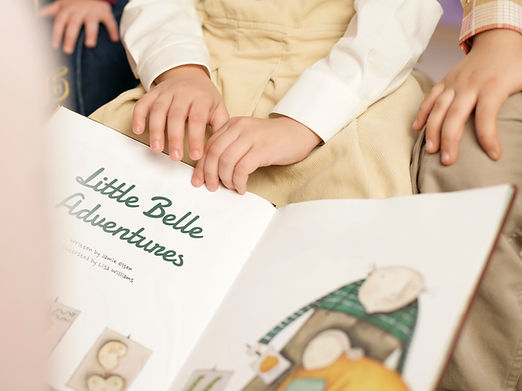
Curitive Education Curriculum K-8
The intent of Waldorf education is to offer an education in a way that gave each child a fundamental, true introduction into the foundation of his or her society while at the same time enhancing that child’s ability to accurately perceive life around him or her without damaging the child’s innate capacity to be sensitively aware
of the Creative Love behind the visible world (whatever that capacity might have been, whether large, small or
nearly nonexistent—the teaching was not intended to train a student’s spiritual vision, just not to damage what already existed) Nancy Parsons Whittaker The Waldorf lower school (1-8) does not aim simply to teach children to retain factual knowledge to be reproduced on demand. Steiner felt that at this age range, the child should assimilate what has to be learned primarily with feeling and should be fully engaged with warmth and enthusiasm for what is given. The subject matter is presented artistically and imaginatively, and the children’s involvement is maintained through movement, singing, story and other activities which relate both to their development and to the subject
in hand.

1st Grade
The child has completed the formation of their physical body and is ready to begin work with their mind. Children learn best at this age by entering the world with love, sympathy, and wonder.
Curriculum: Imaginative stories, exploring nature, music, foreign language, handwork and painting.
2nd Grade
The child is like a butterfly who has just emerged from the chrysalis sitting upon a leaf poised for flight. This is the time when they discover their relationship with the world around them. They are eager to participate in everything that comes to their attention.
Curriculum: Drama, poetry, painting, grammar, arithmetic, nature study, handwork, foreign language, flute.

Children receive pratical and academical tasks that precisely meet them where they are.
They never feel frustrated.
The teacher child ration is 1:5

3rd Grade
This is the “Crossing Point” for a child. They start to question everything and feel separate from the world. They sometimes suffer from loneliness and fear. At this time it is important for the child to learn self-sufficiency.
Curriculum: Practical farming and gardening, building shelters, drama, music, foreign language, long division, measurement, and grammar.
4th Grade
The child is like a butterfly who has just emerged from the chrysalis sitting upon a leafpoised for flight. This is the time when they discover their relationship with the worldaround them. They are eager to participate in everything that comes to their attention.
Curriculum: Drama, poetry, painting, grammar, arithmetic, nature study, handwork, foreign language, flute.


5th Grade
The Fifth-grade child has crossed over into harmonious balance where they can begin to flourish. This is the time to establish foundations for their future.
Curriculum: Ancient Civilizations, botany, research compositions, foreign language, string ensemble, painting, sculpture, geometry, ratios and proportions, class play.
6th Grade
The child takes a firm, intentional step into the outer world and becomes aware of the changes in their body. With increasing awareness of the physical self, the time is right for study of the physical body of the earth.
Curriculum: Roman history, geology, minerals, climate, physics, astronomy, literature, biography speech, drama, history, recitation, pre-algebra, business math, cultural studies, choir, woodworking.


7th Grade
As the seventh-grade child enters puberty they are on their way to selfhood. A spirit of inquiry and creativity needs to be fostered to allow for a sweet entry into adulthood.
Curriculum: Age of Exploration, Renaissance and Reformation, creative writing, speech, drama, Euclidean geometry, business math, chamber orchestra, perspective drawing.
8th Grade
The child experiences birth into intellectual consciousness. They become more aware ofthemselves and their own organic processes, drives, and rhythms of their body.
Curriculum: Age of Revolutions, Civil Rights, Shakespeare, creative writing, speech,drama, Euclidean geometry, human physiology and anatomy, organic chemistry, physics, aerodynamics, meteorology, chamber orchestra, carpentry, perspective drawing.

